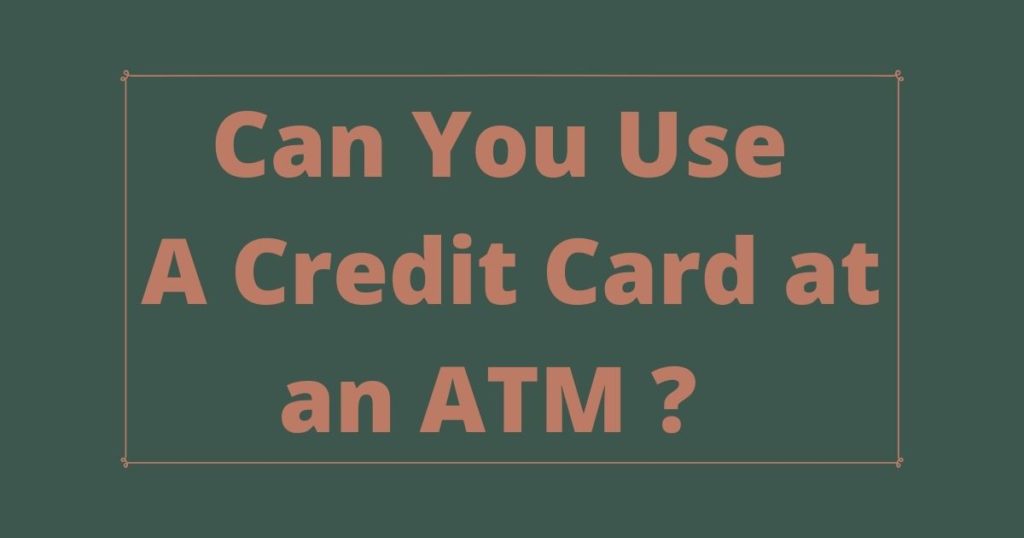If you are currently paying a higher rate, you can request a lower interest rate on a credit card with your card company. To negotiate a lower interest on your credit card, call your credit card issuer or visit a local branch of your bank or credit union.
Paying a high interest rate on a credit card costs you more money in the long term especially when you carry a large balance every month. Currently, the average APR on credit cards is 20.93% with some credit cards averaging well over 25% APR which makes these rates some of the highest in the lending industry. The good news is that credit card rates are not fixed. This means they can be changed over time based on changes in your creditworthiness, financial situation, or market rates.
While you can request a lower interest rate on a credit card, your card issuer is not obligated to approve your request. Many credit card companies lower your credit card interest after you have improved your credit score, have been making on-time payments, or when you are having financial hardship.
Here is what you need to know and the process of negotiating a lower interest on your credit card.
Can I negotiate a lower interest rate on a credit card?
One important question that many credit card holders usually ask is whether it’s possible to negotiate a lower interest rate on their credit cards. Well, the good news is that it is indeed possible, and it’s a strategy that can potentially save you a significant amount of money in interest payments. To request a lower interest rate on a credit card, call your card issuer and speak to a representative or visit a physical branch if they have one.
While you can request a lower interest rate on a credit card, your lender is not obligated to lower your rate. However, it does not hurt to ask. Usually, lenders agree to lower your rate after you have improved your credit score. For example, if you qualified for a 27% APR when you first applied for a credit card due to having a bad credit score and you have improved your score to a good credit score, your card issuer might agree to lower your rate to reflect the changes in your creditworthiness.
Having a good track record of consistent on-time payment is also essential when you want to request a lower interest rate on a credit card.
Your credit card issuer might also lower your interest rate if you are having financial hardships. For example, if you recently lost a job and a high interest is making it difficult to pay off your credit card balance, your card issuer might agree to temporarily lower your interest rate to prevent a default on your loan.
How to negotiate a lower interest rate on a credit card?
Before you request a lower interest rate, it’s essential to prepare yourself with some critical information and strategies. Here are practical tips to get approved for a lower rate when negotiating with your credit card issuer.
- Gather all the necessary information about your current credit card situation. This includes knowing your current interest rate, credit limit, and the length of time you have been a cardholder.
- Research your credit card issuer’s policies. Find out if they have any existing programs or promotions that might grant you a lower interest rate. You can also look into any competitors that offer better rates and perks to their cardholders.
- Prepare information about your current financial situation. Lenders usually make decisions based on the evidence you present to them. So, if you just recently lost your job or have a sudden change in your financial responsibility, have this information ready. You can also have evidence of consistent payment history which proves how you take financial responsibility.
- Call your card issuer or visit a nearby branch. Generally, credit card issuers want to retain customers, so they may be more willing to work with you than you might expect. Be polite, and respectful, and convey your reasons for wanting a lower interest rate. Emphasize your loyalty to the company and your responsible payment history to demonstrate that you are a valuable customer. Also, present any evidence you have that supports your claims such as improved credit score.
- Show lower rates offered by competitors. If you have promotional rates or pre-approval letters for a lower rate from another company, show these rates to your current card issuer. Your card issuer might approve you for a lower rate than lose you to a competitor.
- Get approved for the new rate. Your credit card issuer will review your documents, improved creditworthiness, and current financial situation. If you qualify for a lower rate, your card issuer will let you know.
When to request a lower interest rate on a credit card?
Just because you are paying a higher interest rate, it does not mean you can simply apply for a lower rate and get approved. Your lender will still evaluate your current financial situation and creditworthiness during the assessment of your request.
Here are a few times it makes sense to request a lower interest rate.
- You have improved your credit. If you have been working on your credit for a while and have made a significant improvement, requesting a lower interest rate on a credit card will be a good idea. For example, if your credit score was 600 and now you have a 700+ score, you should negotiate a lower interest rate on your card.
- You have a track record of on-time payments. Lenders usually evaluate your payment history before approving you for a loan or lowering your rate. If you have been with the company for a while and have been paying your bills on time, you might get approved for a lower interest rate on a credit card. This is because being with the company for a while makes you a valuable customer. For this reason, the company could choose to lower your interest rate assuming that you have been following the terms of your credit card.
- You are having financial hardship. Life events can happen at any time and lenders understand that. So, if you are having trouble meeting your monthly payments, reach out to your lender and request a lower rate. As long as you are honest and have evidence of changes in your financial situation, you can quickly negotiate an interest reduction on a credit card.
Benefits of lowering the interest rate on your credit card
Paying a higher interest rate on a credit card does not do you any good as a consumer. Not only that higher rates cost you money in interest charges, but they also make it harder to fulfill other financial responsibilities such as investing or saving for retirement.
Here are the benefits of negotiating the interest on a credit card.
Lower rates save you money and prevent you from accumulating debt
One of the primary benefits of lowering your interest rate is the potential for substantial savings. Even a small reduction in your interest rate can add up to significant savings over the life of your credit card balance. With a lower interest rate, more of your monthly payment goes towards paying down the principal balance, helping you to become debt-free faster.
Financial flexibility and easy to manage your credit cards
A lower interest rate can provide greater financial flexibility which in turn helps in managing your credit accounts. When you have a lower interest rate on credit cards, you have more room in your budget to allocate funds towards other credit accounts and financial goals, such as saving for emergencies, investing, or paying off other debts.
Being able to pay off your debt also makes it easy to manage your credit cards. In other words, you will not worry much about a credit card if you are not carrying a balance on it.
What is a good APR for a credit card?
When it comes to credit card APRs, a good rate largely depends on your financial situation and creditworthiness. Generally speaking, a good APR for a credit card falls within the lower range of the national average. As of the most recent data from creditcards.com, the national average APR for credit cards is around 20.93%. Therefore, a good APR would be anything below this rate.
However, it’s important to note that credit card companies typically offer different APRs depending on factors such as credit score, credit history, and income. If you have a strong credit score and history, you may be able to qualify for credit cards with APRs on the lower end of the spectrum, perhaps even below the national average.
On the other hand, if you have a lower credit score or a limited credit history, you may be offered credit cards with higher APRs. These higher rates are put in place to offset the risk that credit card companies perceive in lending to individuals with less favorable credit profiles. In these cases, it’s essential to work towards improving your creditworthiness to ultimately qualify for more favorable APRs.
Keep in mind that credit card companies often offer promotional introductory APRs that are lower than the standard rates. These temporary offers can be a great way to save money on interest, especially if you plan to make a large purchase or transfer a balance from a higher interest-rate card. While promotional rates can help you save money, they do not last forever. For this reason, you should evaluate the terms and conditions of these promotional rates, including how long they last and what the APR will be after the introductory period ends.
Will my bank lower the interest rate on my credit card?
Negotiating with your credit card provider can be a great way to lower your interest rate. Many people assume that the interest rate on their credit cards is fixed and cannot be changed. However, this is often not the case. Banks and credit card companies are in the business of making money, and they want to keep you as a customer. That means they may be willing to work with you to lower your interest rate if you approach them with evidence that supports your request.
Banks are more likely to lower the interest rate on your credit card if you have improved your credit score since you first obtained your credit card, have shown a strong payment history, or when you are facing financial hardships.
What to do if your bank refuses to lower interest on your credit card?
Negotiating a lower interest on your credit card does not always result in an approval of your request. While it might be disheartening to have your request rejected, it does mean the end of the road. There are still a few steps you can take to turn your situation around.
Here are things to do when the bank refuses to lower the interest on your credit card.
- Don’t get frustrated. Getting frustrated or angry won’t help your case. Matter of fact, it might even make matters much worse.
- Consider a balance transfer. If your bank refuses to lower interest on your credit card, try the balance transfer. Many other banks and credit card companies offer enticing introductory interest rates for balance transfers. By doing your research and comparing multiple card issuers, you might find a better deal elsewhere that suits your needs.
- Explore alternatives. If your bank still refuses to lower interest on your credit card, it might be worth exploring other financial products or services that could help you lower your overall debt burden. For example, you could look into obtaining a personal loan with a lower interest rate to pay off your credit card balance.
- Improve your credit score and try again. When you request a lower interest rate on your credit card, the lender evaluates your requests and makes the decision based on the evidence you provided. If the leader decided to not lower your credit card interest rate due to having bad credit, it would be a good idea to improve your credit before submitting another application. Here are tips to help you get a 700 credit score fast. You can also try my guide to boosting your credit score in 30 days.
How to avoid paying interest on a credit card?
Interest on your credit cards makes it harder to pay off your debts as these rates are higher and compounded daily. The smartest thing you can do is to avoid paying interest on your credit cards as much as possible.
Here are practical tips to avoid paying interest on your credit cards.
- Pay your credit card balances in full each month. The best way to avoid paying interest on credit cards is to pay off your balances in full each month. Without a balance on your credit card, you will not pay the purchase APR on your credit card.
- Avoid cash advances. A cash advance comes with its own APR, fees, and charges. This interest also starts compounding the same day you withdraw cash from your credit card. By avoiding a cash advance, you automatically avoid paying cash advance interest, fees, and charges altogether.
- Use your savings to pay down your debts. If you have money saved for a long-term goal such as a car purchase or a down payment on a house, you might need to use some of these funds to pay off your credit card balances.
- Use a personal loan to pay off your credit card debt. If you are struggling with high interest on your credit card, get a personal loan to pay off that balance. Personal loans come with lower interest rates than most credit cards which makes them favorable compared to credit cards. According to Bankrate, as of August 2023, the average APR on personal loans is 11.31% which makes it cheaper to pay off than a 20.93% average APR on credit cards, according to creditcars.com.
- Do not use credit cards to make expensive purchases. Major purchases utilize most of your credit limit fast which could lead to carrying some of that balance to the following months. To avoid this issue, use your credit cards on smaller and more manageable purchases.
- Use a balance transfer credit card to consolidate your debt. By transferring your credit card balance to a 0% APR introductory credit card, you will be able to pay it off slowly without paying interest on it.
Final words
While it is possible to negotiate a lower interest on a credit card, your credit card issuer might still deny your request if you do not meet some of the requirements. But, it does not hurt to ask. To increase your likelihood of getting approved for a lower credit card interest rate, improve your credit score, show proof of consistent on-time payments, or an explanation of financial hardship. You can also look into other strategies such as consolidating your debt with a balance transfer credit card or simply paying off your debt faster to avoid the long-term impact of credit card interest on your balances.







